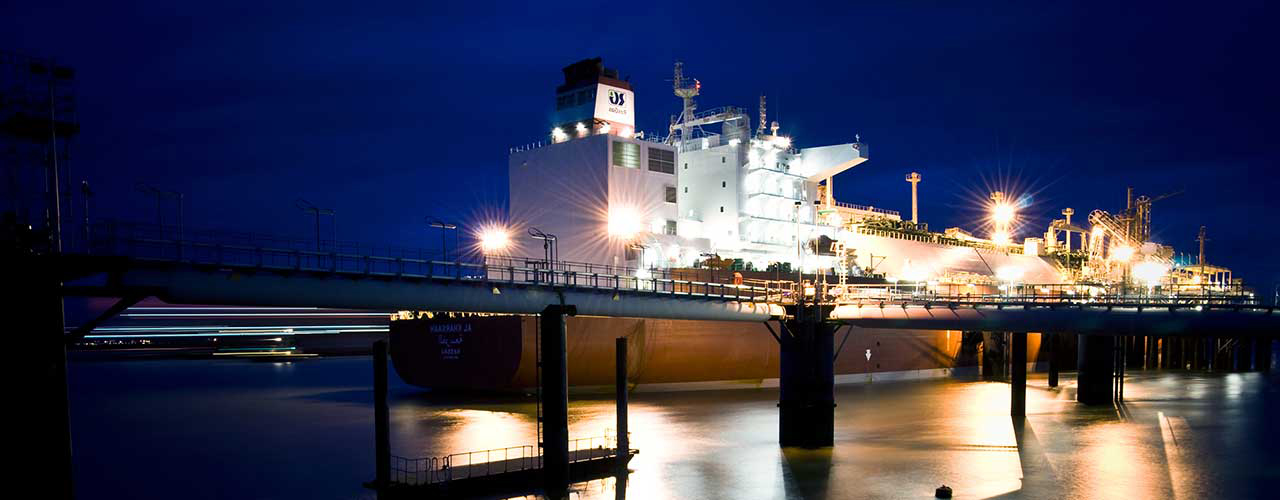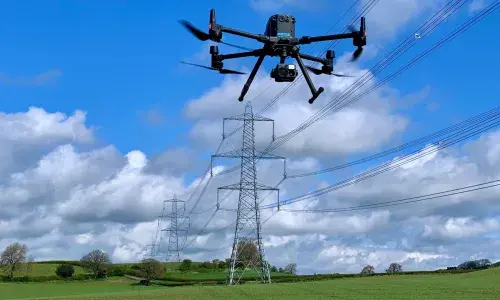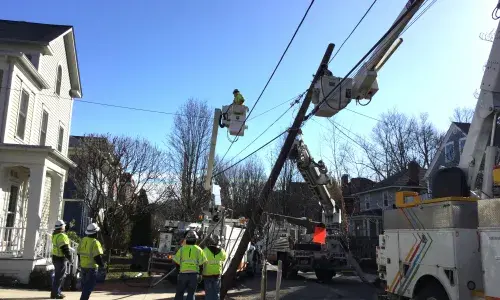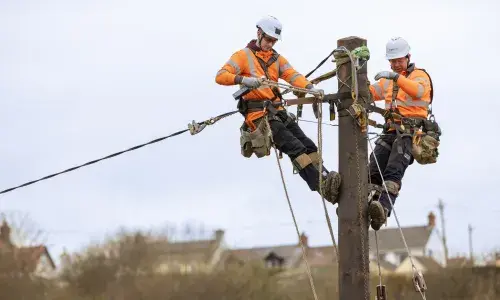
Helping to fuel the UK
Ed Carter manages the operations team at National Grid’s Grain LNG Terminal in Kent, which imports and stores natural gas used to heat homes, businesses, hospitals and schools. It also fuels LNG road tankers that power many of the lorries delivering the nation’s essential food and medical supplies. Here Ed explains more and talks about how the good old cuppa is keeping his team going through the coronavirus crisis.

The UK increasingly imports the gas we use to ensure we’ve got enough to meet demand. Some of this comes in via gas interconnectors – huge pipes that transport gas from Europe – but much of it is imported as Liquefied Natural Gas (LNG).
LNG is a clear, colourless liquid that forms when natural gas is cooled to -162ºC (-260ºF). Because it takes up far less space – it’s around a 600th of the size of ‘original’ gas – it’s much easier to transport. Importing LNG to the UK from different parts of the world helps to increase security of supply (making sure we always have enough gas), while also keeping gas prices more affordable.
Europe’s largest LNG terminal
LNG comes to the UK from across the world on giant tankers, some equivalent to three football pitches in length. These vast ships dock at our terminal on the Isle of Grain in Kent, which spans over 600 acres. We store the LNG here and, when needed, we convert it back to gas by heating it up in what are essentially giant kettles. Once in gas form, it’s put into the national gas network; ready to supply up to 30% of UK homes, businesses, hospitals and more.
Fuelling food deliveries and off-grid communities
Some of our LNG is kept in liquid form for use as an alternative to petrol or diesel to fuel vehicles. Lorries delivering food and medical supplies around the UK might well be running on LNG, making it extra-important to keep our work going. We also send LNG out to areas of the UK that are not connected to the mains gas system – such as Skye and Wick in Scotland – allowing people to stay warm and keep cooking their family meals.
Reducing risks to keep staff safe
We’re doing what we can to reduce the potential for infection among our staff. Where possible, people are working from home, supporting those who are still on site. But some of our team has to be on site, including our maintenance and control room staff who are working around the clock to keep things running smoothly, and we’re doing everything we can to keep them safe.
We’ve cut back staff and contractor numbers on site and we’re sticking to doing only essential tasks, while still running everything safely. We’ve split some of our teams down the middle and moved them to different parts of the site, to lower the risk of cross-contamination. Everything is being cleaned at least twice a day and our cleaners are restricted to their own specific zones. We’re all following good practice on social distancing too of course.
And we’ve made arrangements with our local supermarket to ensure we have food supplies and because, like most of Britain, our site staff run on tea, we have plenty of that too.
Helping the local community
The team has worked before with a local group called WHOO Cares, which supports the community in the area. Some of our staff are now volunteering with them to call lonely people during the lockdown. We’ve also given spare stationery to kids who are stuck at home. They’re small ways that we can make a difference.
A team effort
The whole Grain team has stepped up their efforts to keep the gas flowing – we’re pulling together, as we always do. We’ve even had a couple of old staff, who retired a few years ago, get in touch and offer to help. We have comprehensive pandemic business continuity plans in place that have been designed to manage any impacts of the coronavirus crisis, while protecting our people and our community. But our job is the same one we have every other day of the year – to operate the site to the highest standards of safety and continue to ensure a secure supply of gas for the UK.



